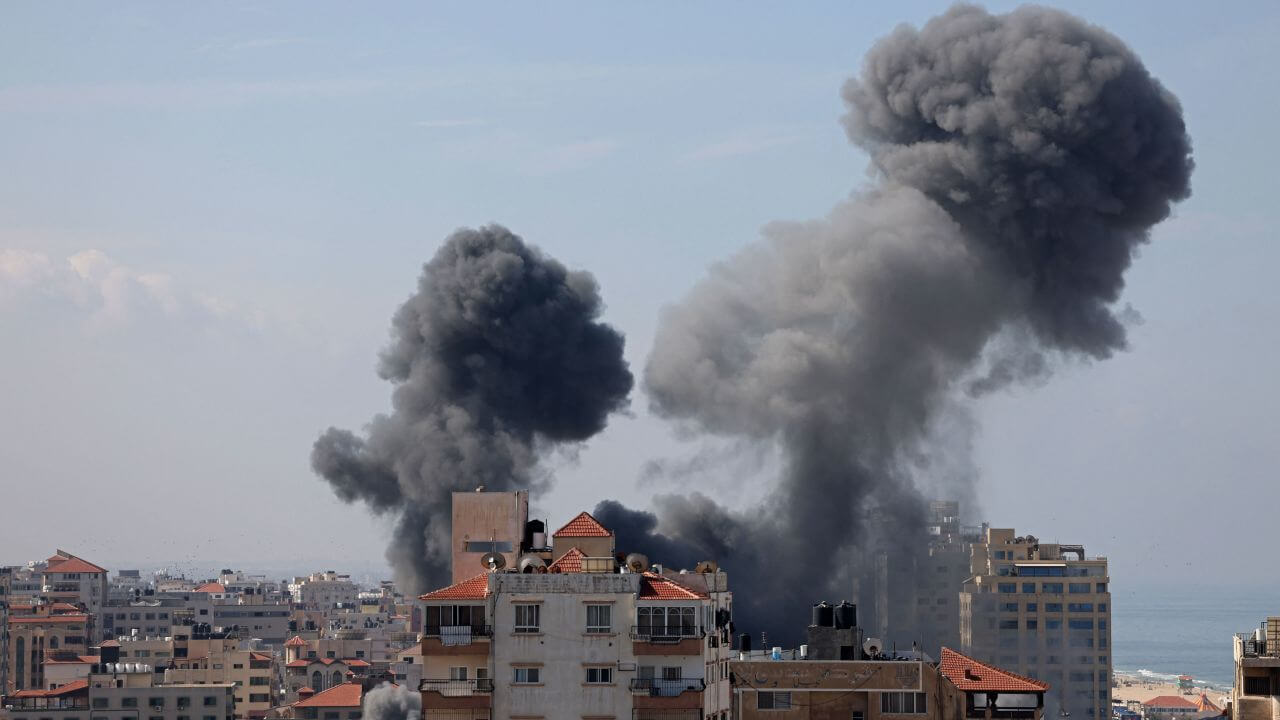The US’ top general warned Iran not to become involved in the Israeli-Hamas war and said he did not want the situation to escalate, as the Lebanese armed organisation Hezbollah launched a barrage of missiles into northern Israel.
A top #US general has warned Iran not to get involved in the #Israel crisis amid escalating conflict with #Hezbollah. https://t.co/jCyLjSxVfq
— IndiaToday (@IndiaToday) October 10, 2023
US Issues Warning to Iran
A White House spokesperson said on Monday that, even though the US has no information or evidence pointing to Iran’s direct participation in attacks in Israel by the Palestinian Islamist group Hamas, the US was of the view that Iran was “complicit.”
Chairman of the Joint Chiefs of Staff General Charles Q. Brown said, in his message to Iran, “Don’t get involved.” “We want to send a pretty strong message. We do not want this to broaden and the idea is for Iran to get that message loud and clear,” Brown told reporters.
“It sends a very strong message of support for Israel. But it’s also to send a strong message of deterrence to contain broadening this particular conflict,” Brown explained. He equated the activities of Hamas to those of Islamic State extremists.
Reports indicate that the US military is “surging” a fresh round of air defences, bombs, and other security aid to Israel in response to an unprecedented weekend attack by Hamas.
Iran’s Involvement in Hamas Attack?
Iran helped organise and approve the unprecedented strike on Israel during a conference in Lebanon’s capital, Beirut, last week, senior members of the Palestinian terror group Hamas and Hezbollah, another Iran-backed group, told the Wall Street Journal (WSJ).
According to the senior members who spoke to WSJ, officers from Iran’s Islamic Revolutionary Guard Corps (IRGC) had been working with Hamas since August to plan the air, land, and sea invasions, which they described as the most significant violation of Israel’s borders since the 1973 Yom Kippur War.
Details of the operation were finalised at a series of meetings in Beirut, attended by IRGC officials and leaders of four Iran-backed terrorist groups, including Hamas, which controls Gaza, and Hezbollah, a Shiite militant group and political movement in Lebanon, as reported by WSJ.
Senior Hamas and Hezbollah members and an Iranian official claimed that the IRGC’s broader strategy is to create a multi-front threat that can crush Israel from all sides — Hezbollah and the Popular Front for the Liberation of Palestine in the north and Palestinian Islamic Jihad and Hamas in Gaza and the West Bank.
WSJ stated that Hamas has publicly acknowledged getting Iranian support. In addition, Iranian President Ebrahim Raisi reportedly met with Palestinian Islamic Jihad commander Ziyad al-Nakhalah and Hamas leader Ismail Haniyeh on Sunday.
The unprecedented scale and the sophisticated tactics Hamas used in its attack on Israel indicate Iran most likely played a significant role in the multipronged assault, former U.S. intelligence and military officers say. https://t.co/Eqb7VbcMw6
— NBC News (@NBCNews) October 9, 2023
The members stated that Iran has diverted foreign resources from other regional wars, such as its open conflict with Saudi Arabia in Yemen, to coordinate, finance, and arm anti-Israel forces such as Hamas and Hezbollah.
The WSJ report indicates that the attack was meant to target Israel when it was preoccupied by internal political conflicts inside PM Benjamin Netanyahu’s cabinet. It was also intended to derail the increasing US-brokered efforts to normalise ties between Saudi Arabia and Israel, which Iran considered a threat.
However, when asked about the meetings, top Hamas leader Mahmoud Mirdawi maintained that the group organised the attacks independently. “This is a Palestinian and Hamas decision,” he told reporters.
Blinken says U.S. has 'not yet seen' evidence of Iran involvement in Hamas attack on Israel https://t.co/rgnCUpPzZM
— CNBC (@CNBC) October 8, 2023
Western Nations Suspect Iran’s Role
Against this backdrop, officials in the US said they have seen no evidence of Tehran’s participation. Secretary of State Antony Blinken told CNN on Sunday, “We have not yet seen evidence that Iran directed or was behind this particular attack, but there is certainly a long relationship.”
US officials commenting on the meetings said, “We don’t have any information at this time to corroborate this account.”
However, a European diplomat and a Syrian government adviser provided the same narrative of Iran’s involvement in the attack as top Hamas and Hezbollah members stated earlier.
Similarly, Israel has blamed Iran, claiming it is indirectly behind the attacks.
“We know there were meetings in Syria and Lebanon with other leaders of the terror armies that surround Israel, so it’s easy to understand that they tried to coordinate.” “The proxies of Iran in our region tried to coordinate as much as possible with Iran,” Israel’s ambassador to the UN, Gilad Erdan, said on Sunday.
Iran’s Response
Iran has denied the accusations. According to Nasser Kannani, a spokesperson for the Iranian Foreign Ministry, “the accusations linked to an Iranian role [...] are based on political reasons.”
Kanani stated that the Palestinians have “the necessary capacity and will to defend their nation and recover their rights” without the help of Tehran. “Talking about an Iranian role aims at turning public opinion (away from the facts) and at justifying the potential future actions” of Israel, he added.
The Iranian mission claimed, “We emphatically stand in unflinching support of Palestine; however, we are not involved in Palestine’s response as it is taken solely by Palestine itself.”
Iranian officials stated that if Iran were to be attacked, it would reply with missile attacks on Israel from Lebanon, Yemen, and Iran, and send Iranian militants into Israel from Syria to target towns in Israel’s north and east.

